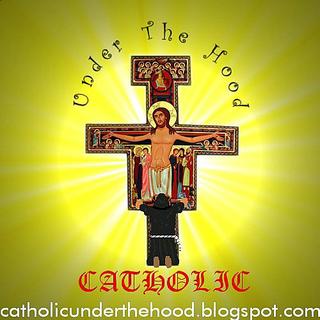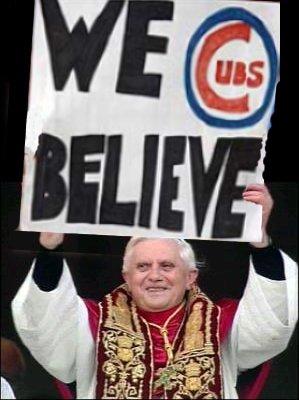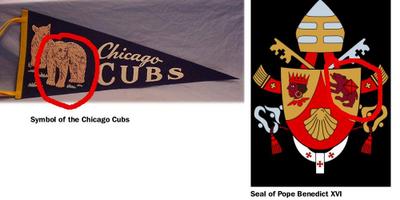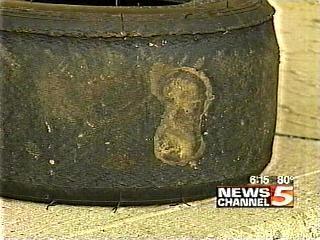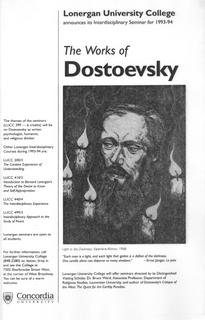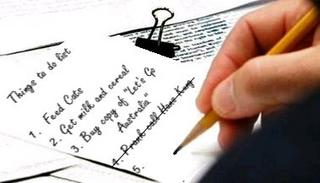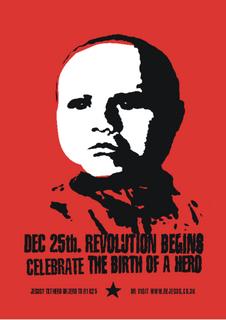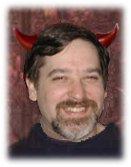As a Catholic historian whose speciality is modern Europe, I don't usually have to deal with the subject of human origins, but I do have to address it in my Western Civilizations class. It can be a controversial subject area as it concerns scientific and theological truth as well as deep personal emotions. The subject is especially difficult for the historian as it concerns the pre-history of humanity - a time of no written sources and in that sense is more under the domain of the anthropologist. It is also difficult because it concerns theological opinions which also fall somewhat outside the realm of history as an academic discipline.
I wanted to jot down some of the reflections that I have had about the interaction between Catholic Theology and Evolutionary Science that I have had as I seek to present an understanding of human origins that is faithful to the truth as it is expressed both in the faith and in science. So far, it has been a challenge for reasons that will be apparent as these reflections continue.
Before I begin, let me be clear that I am not a biologist and I am not an expert in evolutionary science. So, if my presentations on the science of evolution are incorrect - I am always willing to modify my views.
In this first post, I wanted to present some of the problems that seem to exist in even looking at the subject of Catholicism and Evolution.
The Theory of Evolution has been very difficult for many to accept - especially those who believe in a literal interpretation of the Book of Genesis [about forty percent of all Americans]. Evolution’s reliance on chance and natural selection for species development seems to leave no room for God within the world, much less a real purpose for creation. Evolution’s assertion that humanity is simply one of many evolving species, which arose only accidentally, appears to minimize humanity’s particular uniqueness. The importance of a “survival of the fittest” mechanism to evolution appears to make evil simply a natural part of the universe and not the result of an original sin. Some Catholics fear that if there is no original sin, there is no fall and therefore no need for a Savior.
Connected with this is the very charged language which permeates the discourse between opponents and supporters of the Theory of Evolution. For example,
Robert Sungenis of the Kolbe Center for the Study of Creation calls the Theory of Evolution a "Bill of Goods" which has "no-supporting evidence" and is contrary to the continuing tradition of the Church.
Richard Dawkins, a vocal supporter of Evolution, claims, “if you meet somebody who claims not to believe in evolution, that person is ignorant, stupid or insane (or wicked, but I’d rather not consider that).”
In the face of these polarized opinions, some have chosen to reject any recourse to faith in the search for truth. These “Naturalists” or “Evolutionists” [as I will call them] believe that empirical science has demonstrated the reliability of evolutionary theory and left no room for God in creation. They believe that life developed billions of years ago through “an improbable series of accidents.” As Richard Dawkins claims, “The universe we observe has precisely the properties we should expect if there is, at bottom, no design, no purpose, no evil and no good, nothing but blind, pitiless, indifference.” A creation that is the result of blind chance and purely mechanistic causes would seem to make “theological or spiritual explanations of the life processes superfluous.” [Sources: John F. Haught,
Responses to 101 Questions on God and Evolution (New York: Paulist Press, 2001) and William S. Harris and John H. Calvert, “Intelligent Design: The Scientific Alternative to Evolution”,
The National Catholic Bioethics Quarterly 3, no. 3 (Autumn 2003)]
Needless to say, such a presentation of evolution which denies the existence of or role for God is in complete opposition to the Catholic faith tradition. For, if there is no purpose, “there is no meaning, there are no absolutes, and there is no reason for existence.” [Harris] If evolution did demonstrate faith and science to be incompatible, it would understandably be catastrophic for the reasonableness of Christianity.
The existence of multiple Theories of Evolution also makes it difficult to nail down what exactly one means when one speaks of the subject. For example, the theory of
Punctuated Equilibrium of Stephen Jay Gould and Niles Eldredge postulates that there are long periods of genetic stability punctuated by short periods of great genetic change.
Phyletic Gradualism, on the other hand, asserts that genetic change remains relatively constant. I should note, that some would say that there isn't a vast difference between the two.
A third reason why some are hesitant to accept Evolution is that it appears to be scientifically untestable, unlike physics or chemistry experiments which can be performed to verify hypotheses. As Harvard Professor Ernest Mayr notes: "Evolutionary biology…is a historical science – the Evolutionist attempts to explain events and processes that have already taken place. Laws and experiments are inappropriate techniques for the explication of such events and processes. Instead, one constructs a historical narrative, consisting of a tentative reconstruction of the particular scenario that led to the events one is trying to explain." [Mayr cited in Harris]
Ironically, it seems that any proposal designed to demonstrate the validity of evolution requires the very introduction of the structure and design which the supporter of evolution denies is present in natural selection. Scientists can theorize about the evolution of man, they cannot reproduce the steps of that evolution.
This concludes the first part of the presentation. As I said, I come at this from the perspective of a non-expert seeking to reconcile the teachings of faith and reason. I believe that their is only one truth and that if the teachings of faith and science seem in conflict, I don't understand either faith or science correctly [or both]. What I present as problems here I mean in terms of problems that make it difficult for some to accept evolution - these are not necessarily problems in the Theory of Evolution itself.
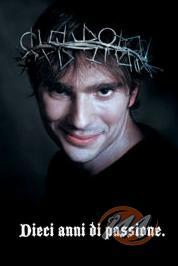 To the left is the Sony Playstation advertisement that is being condemned by Italian Catholics as blasphemous.
To the left is the Sony Playstation advertisement that is being condemned by Italian Catholics as blasphemous.



